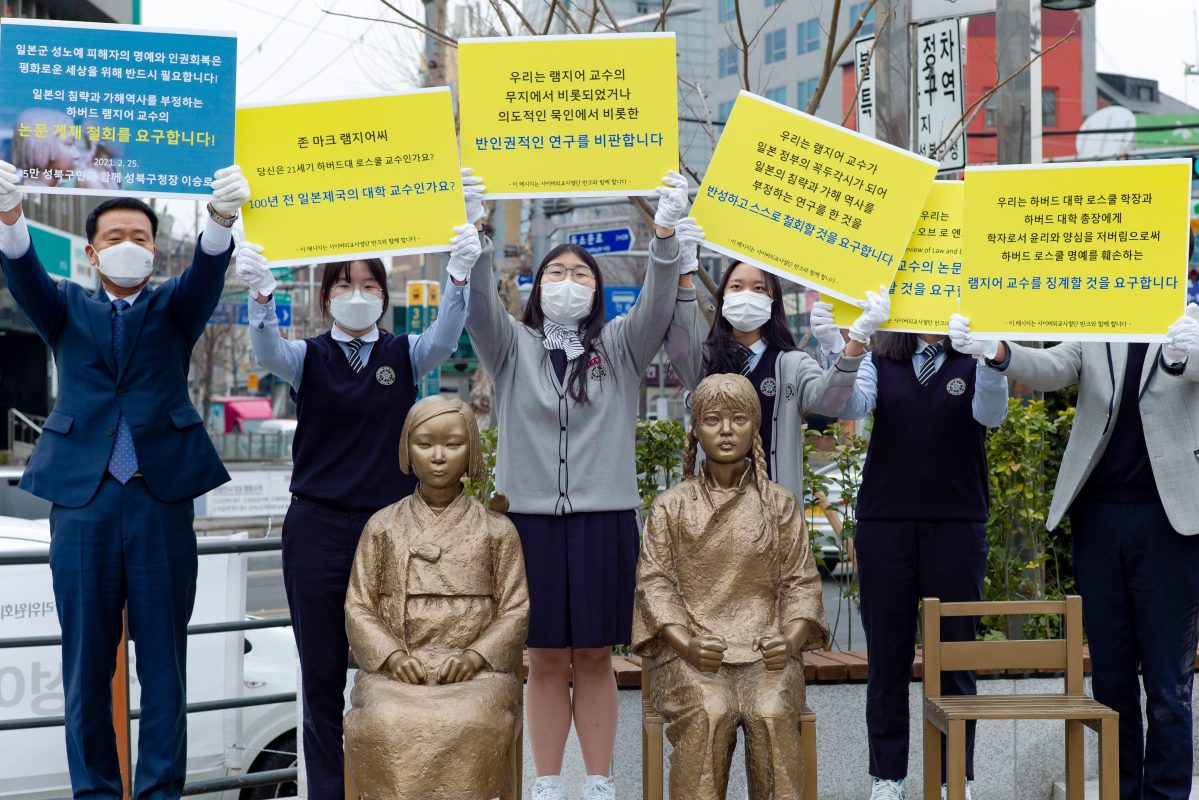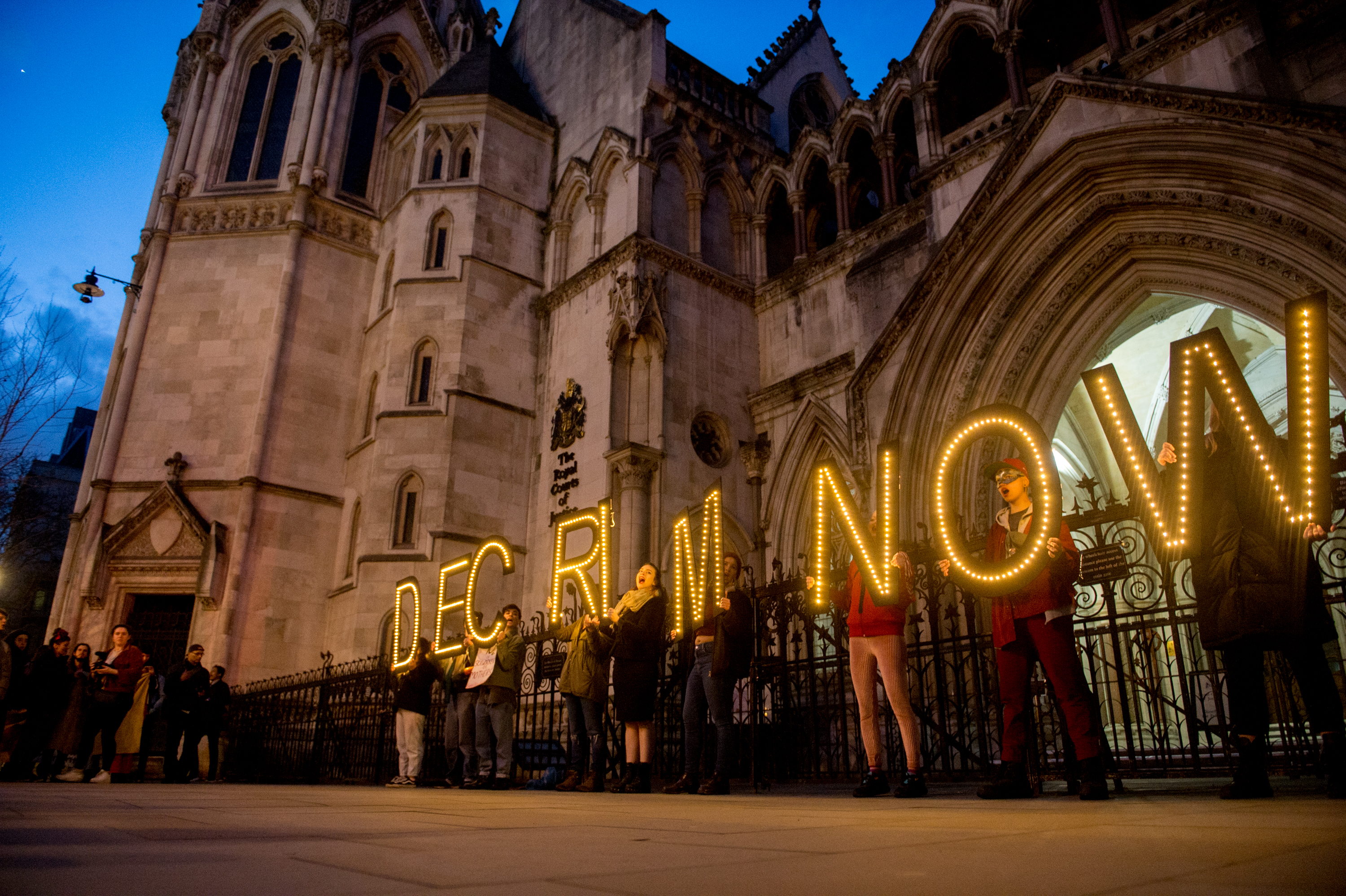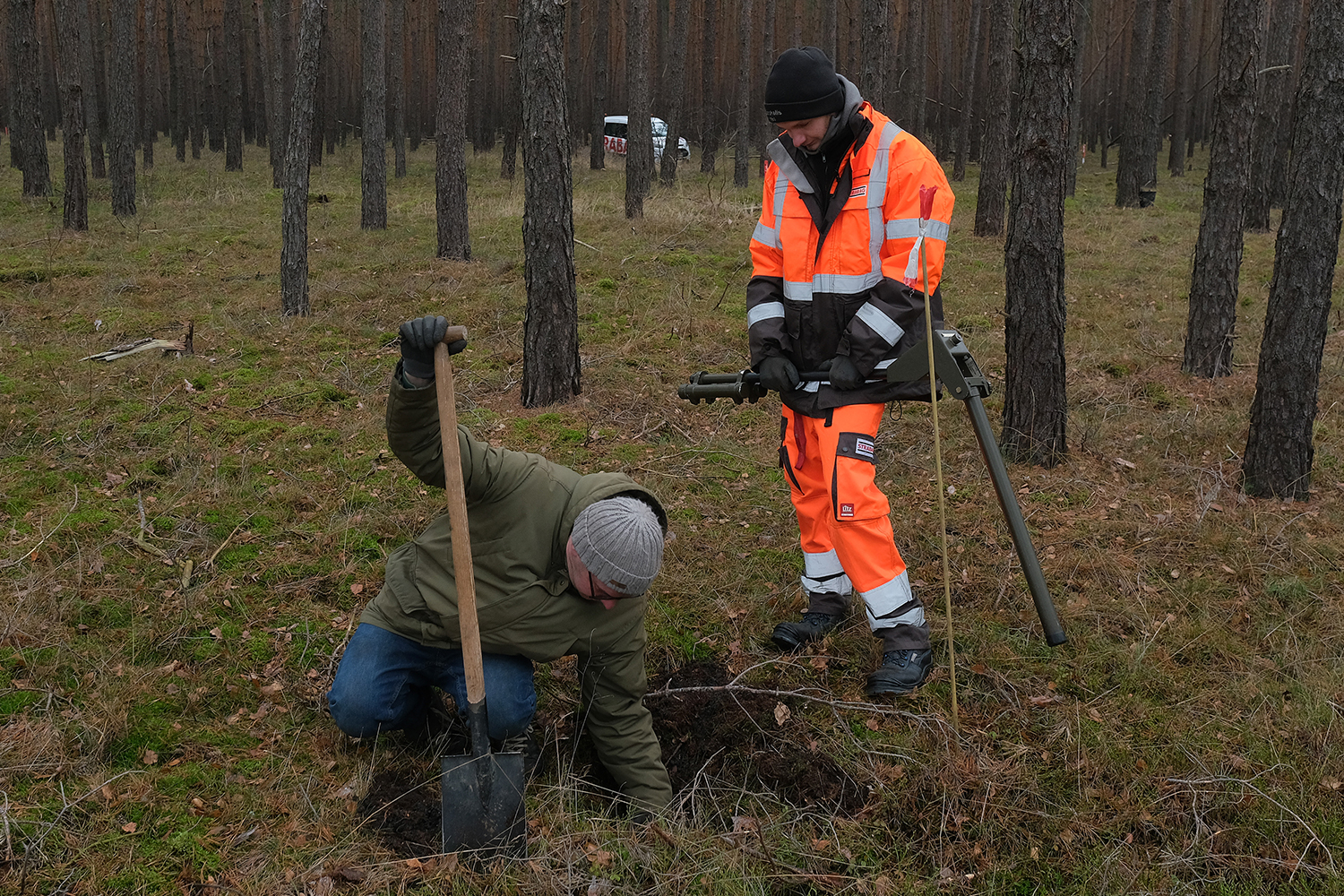A Harvard professor of Japanese legal studies has sparked controversy over some revisions he’s proposed regarding World War II history. Professor J. Mark Ramseyer published an academic paper late last year claiming Asian women who were forced into sexual slavery by the Japanese military, often referred to as “comfort women,” actually chose to work in wartime brothels, the Guardian reported.
In the paper, Ramseyer challenged the long and widely held notion that hundreds of thousands of women — mostly from Korea, but also including Chinese, southeast Asian and a small number of Japanese and European women — were tricked or forced into military brothels during WWII. According to Ramseyer, these women were actually consensual sex workers who had voluntarily entered into contracts. This view, according to the Guardian, is one that has become popular among “Japanese ultra-conservatives seeking to whitewash their country’s wartime atrocities.”
Ramseyer’s paper was set to be published in this month’s issue of the International Review of Law and Economics, but has since been pulled from the publication after various academics raised concerns about the veracity of Ramseyer’s claims. Challenges to Ramseyer’s claims have questioned the legitimacy of the “contracts” the professor claims brothel workers entered into, of which there seems to be little to no evidence. “We do not see how Ramseyer can make credible claims, in extremely emphatic wording, about contracts he has not read,” said Harvard historians Andrew Gordon and Carter Eckert in a statement calling for Ramseyer’s article to be retracted.
Ramseyer’s claims directly contradict prevailing views regarding Japan’s “comfort women,” which have been a source of conflict between Japan and South Korea for decades. Back in 2015, Japan issued an official apology to South Korea for the atrocities committed against hundreds of thousands of that nation’s women, one that was not accepted by many of the living survivors.
Speaking of living survivors, those are women Ramseyer referred to as people “who have had a hard life” in a separate article for the English-website of a rightwing Japanese newspaper, writing: “Expressing sympathy to elderly women who have had a rough life is fine. Paying money to an ally in order to rebuild a stable relationship is fine. But the claims about enslaved Korean comfort women are historically untrue.”
Prominent historians, scholars and political entities alike disagree, and the US state department confirmed the nation’s stance on the issue to South Korea’s Yonhap news agency: “As the United States has stated many times, the trafficking of women for sexual purposes by the Japanese military during World War II was an egregious violation of human rights.”
Thanks for reading InsideHook. Sign up for our daily newsletter and be in the know.


















